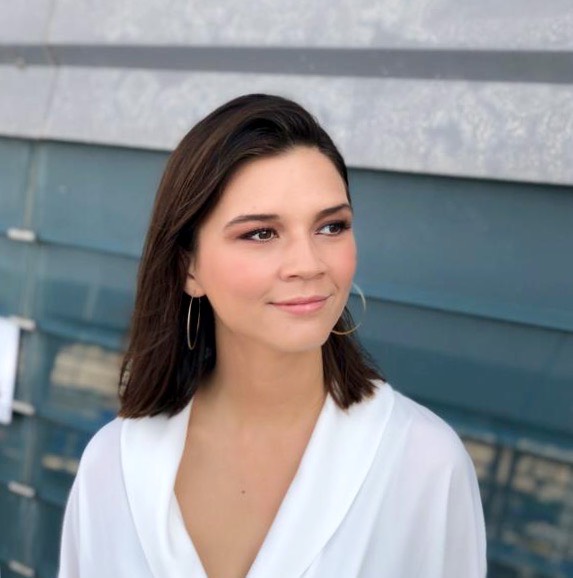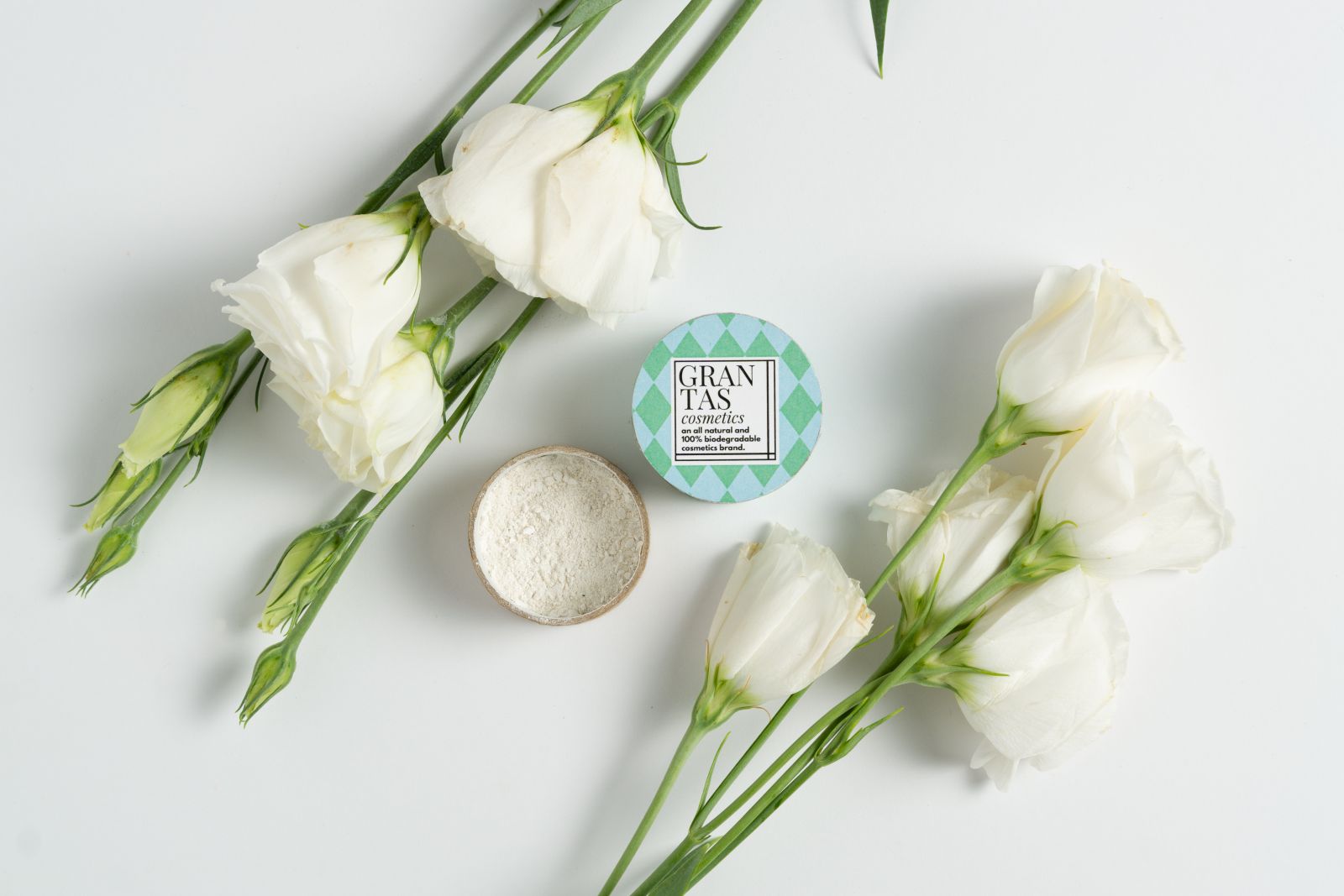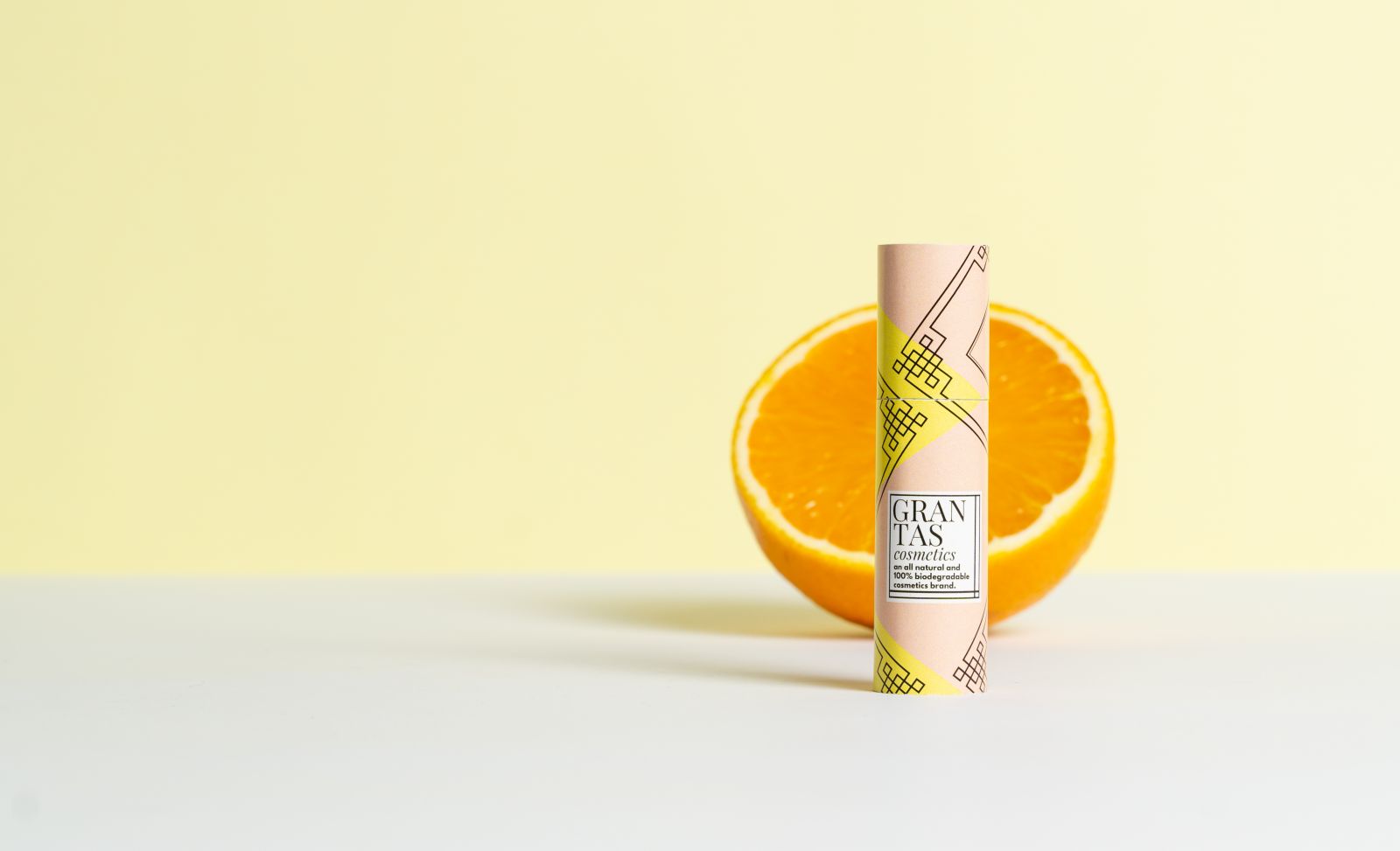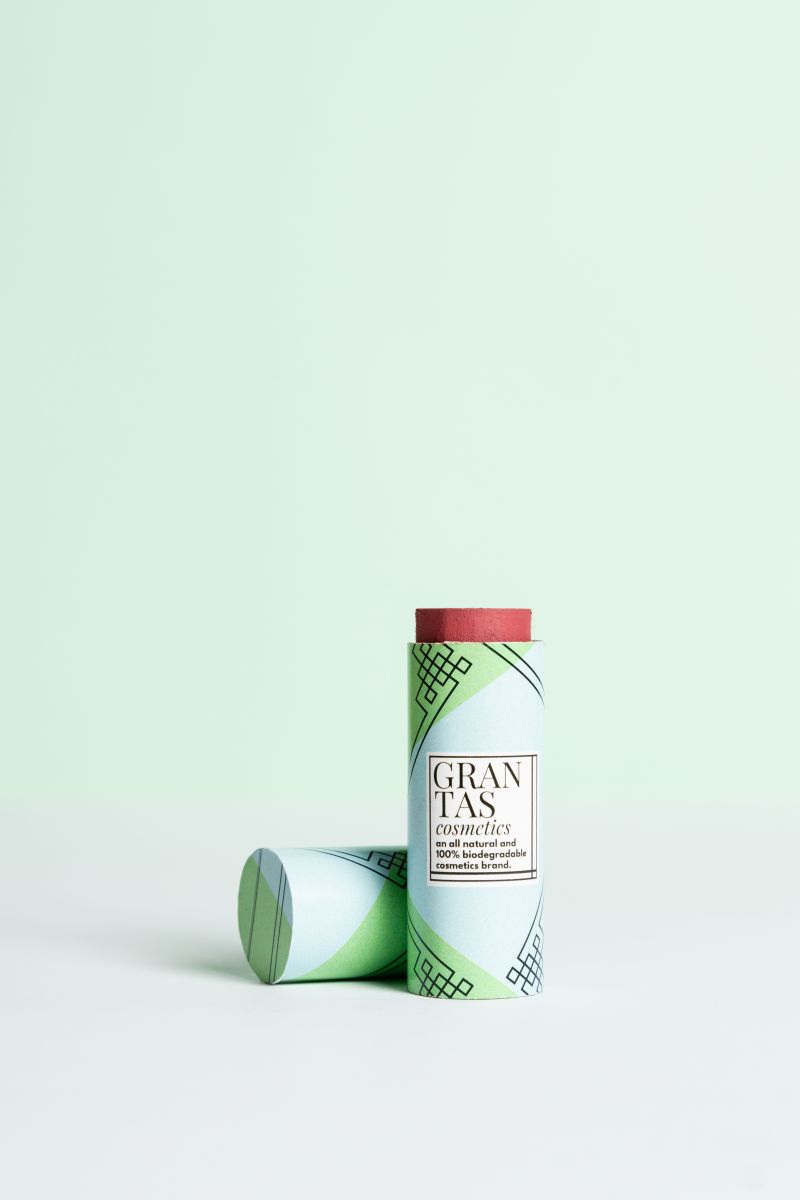Lillian Childress YC'17/FES'20 Launches Grantas Cosmetics on Kickstarter
In late 2018, Lillian Childress was searching for cosmetic products with biodegradable packaging to buy. To her surprise, she found very little options that didn’t contain plastic. So with a free summer on her hands before starting at the Yale School of Forestry and Environmental Studies, she started prototyping.

Six months later, Grantas Cosmetics was born. Grantas makes all-natural cosmetics in 100% biodegradable packaging. For every product purchased, Grantas plants one tree, through a partnership with the organization One Tree Planted.
The lip and cheek sticks and the eyeshadows are made of two simple, renewable materials: cardboard and paper. Through the prototyping and research process, Lillian found that cardboard and paper can preserve the freshness of the makeup and provides a durable package structure, and using these materials, something quite elegant could be created.

In October 2019, Grantas launched on Kickstarter. The Kickstarter campaign wraps up in December 2019, and Grantas plans to put in the final orders to manufacturers by January.
After graduating from Yale in 2017 with a degree in environmental engineering, Lillian went to work at a renewable energy startup in Tel Aviv, Israel. A few months after joining the startup, the company launched a Kickstarter campaign for their backyard biogas systems, which went on to raise almost half a million dollars. At the startup, Lillian headed research and development, where she focused on developing a toilet that transforms toilet waste into renewable cooking gas. The toilet is now used everywhere from eco-villages in Florida to a United Nations Humanitarian Response Depot base.
“Our world is on the brink of extinctions, of warming, of ocean plastic buildup, of rising sea levels. This requires a complete re-imagination of the ways we’ve been doing business. That’s why Grantas doesn’t want to stop at becoming zero-emissions and zero-waste — by planting a tree for each product we sell, we will actually be replenishing more resources than we take,” says Lillian
 In 2018, more than 120 billion units of cosmetics packaging were produced globally, the majority of which were not recyclable. While this waste not only poses a problem for plastic buildup in landfills, waterways, and the world’s oceans, it also presents a carbon threat. While no specific data on the total emissions of the cosmetics industry is available, the impact of packaging on the industry’s carbon footprint is clear: a study by the Netherlands-based group LCA Centre found that just by switching to refillable packaging, the industry’s carbon emissions could be cut by as much as 70%.
In 2018, more than 120 billion units of cosmetics packaging were produced globally, the majority of which were not recyclable. While this waste not only poses a problem for plastic buildup in landfills, waterways, and the world’s oceans, it also presents a carbon threat. While no specific data on the total emissions of the cosmetics industry is available, the impact of packaging on the industry’s carbon footprint is clear: a study by the Netherlands-based group LCA Centre found that just by switching to refillable packaging, the industry’s carbon emissions could be cut by as much as 70%.
Grantas Cosmetics offers a solution to this problem by housing all products in biodegradable packaging. Using biodegradable packaging cuts emissions at all relevant phases of the product lifecycle — including material sourcing, production, and disposal. In addition, Grantas hopes to set a standard as a net-carbon negative cosmetics company. By planting a tree for each product sold, Grantas is not only closing the materials loop, but actually replenishing more resources than it takes to make the product packaging. In addition, the carbon dioxide drawn from the atmosphere by each tree will be greater than emissions from producing and transporting the product – through preliminary calculations, 5000 times greater. In doing this, Grantas hopes to one day set a standard for other cosmetics companies to become net carbon-negative and resource replenishment positive.
Follow Grantas on Instagram or follow their Kickstarter campaign.




